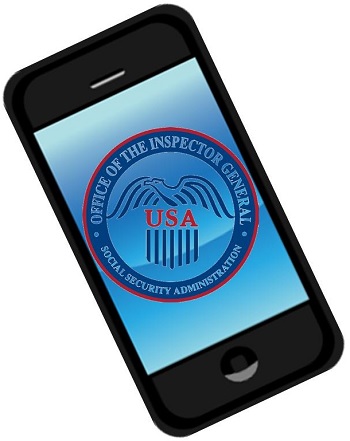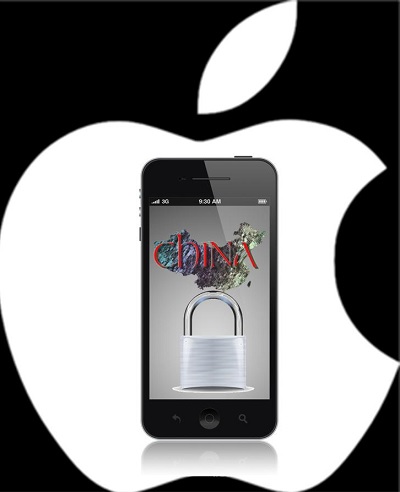Many believe that there continues to be exposure to considerable weaknesses with this technology.
The results of a review that was conducted on the mobile security levels through the use of smartphones and tablets by employees of the Social Security Administration (SSA) has revealed that there are considerable weaknesses.
It has been stated that a significant reason that this problem exists is due to the lack of a cohesive policy.
This problem and speculation regarding mobile security at the SSA was identified and published in a report by the Office of the Inspector General. What the Inspector General’s office determined was that the federal agency “did not always conform with federal standards and business best practices to mitigate unauthorized access to the agency’s sensitive information.” It determined that as the use of devices such as tablets and smartphones continues to become more prevalent, this represents a vital weakness.
A serious mobile security gap can exist when many common behaviors are adopted by SSA employees.
 While it is true that the use of mobile devices give SSA workers the opportunity to accomplish a great deal more, even when they are not sitting at their desks, there are certain behaviors that are considered to be quite commonplace among private device users that can leave a gaping hole in security when used on a professional level. Among them are the downloading of third party apps, as well as accessing the internet over an unsecure network. This spikes the risk of loss or theft of sensitive data.
While it is true that the use of mobile devices give SSA workers the opportunity to accomplish a great deal more, even when they are not sitting at their desks, there are certain behaviors that are considered to be quite commonplace among private device users that can leave a gaping hole in security when used on a professional level. Among them are the downloading of third party apps, as well as accessing the internet over an unsecure network. This spikes the risk of loss or theft of sensitive data.
Among the tests that were conducted on the security of the mobile device use by SSA employees was the copying of a file by the Inspector General’s office to a mobile device. Though the agency’s own standards would have required that this file encrypt itself automatically, this was not the case during the test.
Equally, among the 17 employees of the SSA that were interviewed in this review process, only half showed that they understood that for mobile security purposes, it was important that their agency-provided devices be used exclusively for official government business. Moreover, not a single one of the people who were interviewed were able to identify a policy that was specifically meant to guide them with regards to the use of these gadgets.
The country feels that this behavior could lead “state secrets” to be revealed to spies.
The ever growing disagreement regarding mobile security and American spying activities in China has now risen to a new level as Apple has been roped into the battle, with the iPhone being branded as a national security threat by state television media.
This announcement has arrived only a small handful of months after an iPhone deal with China Mobile.
Recently, a U.S. technology group entered into a deal with China Mobile to supply that company with iPhones. China Mobile is currently the largest phone company on the globe and this accomplishment was considered to be a critical step forward in Apple’s efforts to break into the Chinese marketplace of one billion smartphone users in a more meaningful way. However, online and mobile security have become a growing source of tension between the country and the United States and now it looks as though the success of this deal may be threatened.
CCTV has added this mobile security statement to the growing pile of criticisms of brands from outside the country.
 This announcement arrived in the same week that China and the United States brought high level trade talks to a conclusion and were able to take only the slightest progress in updating an agreement that was already a year and a half old regarding the $2 trillion in annual trade of high tech products.
This announcement arrived in the same week that China and the United States brought high level trade talks to a conclusion and were able to take only the slightest progress in updating an agreement that was already a year and a half old regarding the $2 trillion in annual trade of high tech products.
The state broadcaster in China, CCTV, has been steadily boosting its aggression when it comes to the criticism that it has been laying down against brands from other countries. Its latest accusation was regarding the ability of the iPhone to track its user through its geolocation and positioning tech, as well as having the ability to “view the user’s home address, unit information and whereabouts.”
The report from the broadcaster suggested that some of the information released by Edward Snowden, the former contractor from the National Security Agency (NSA) had shown that some of the data that Apple collected through its smartphones was passed on to advertisers as well as American spy agencies. The broadcaster went on to say that this mobile security issue went even deeper because the data could still be recorded regardless of whether the feature was turned on, placing “state secrets” at risk along with this “sensitive” information.
 While it is true that the use of mobile devices give SSA workers the opportunity to accomplish a great deal more, even when they are not sitting at their desks, there are certain behaviors that are considered to be quite commonplace among private device users that can leave a gaping hole in security when used on a professional level. Among them are the downloading of third party apps, as well as accessing the internet over an unsecure network. This spikes the risk of loss or theft of sensitive data.
While it is true that the use of mobile devices give SSA workers the opportunity to accomplish a great deal more, even when they are not sitting at their desks, there are certain behaviors that are considered to be quite commonplace among private device users that can leave a gaping hole in security when used on a professional level. Among them are the downloading of third party apps, as well as accessing the internet over an unsecure network. This spikes the risk of loss or theft of sensitive data.
 This announcement arrived in the same week that China and the United States brought high level trade talks to a conclusion and were able to take only the slightest progress in updating an agreement that was already a year and a half old regarding the $2 trillion in annual trade of high tech products.
This announcement arrived in the same week that China and the United States brought high level trade talks to a conclusion and were able to take only the slightest progress in updating an agreement that was already a year and a half old regarding the $2 trillion in annual trade of high tech products.